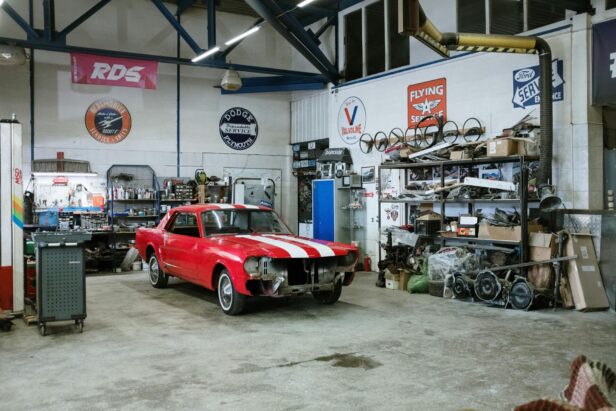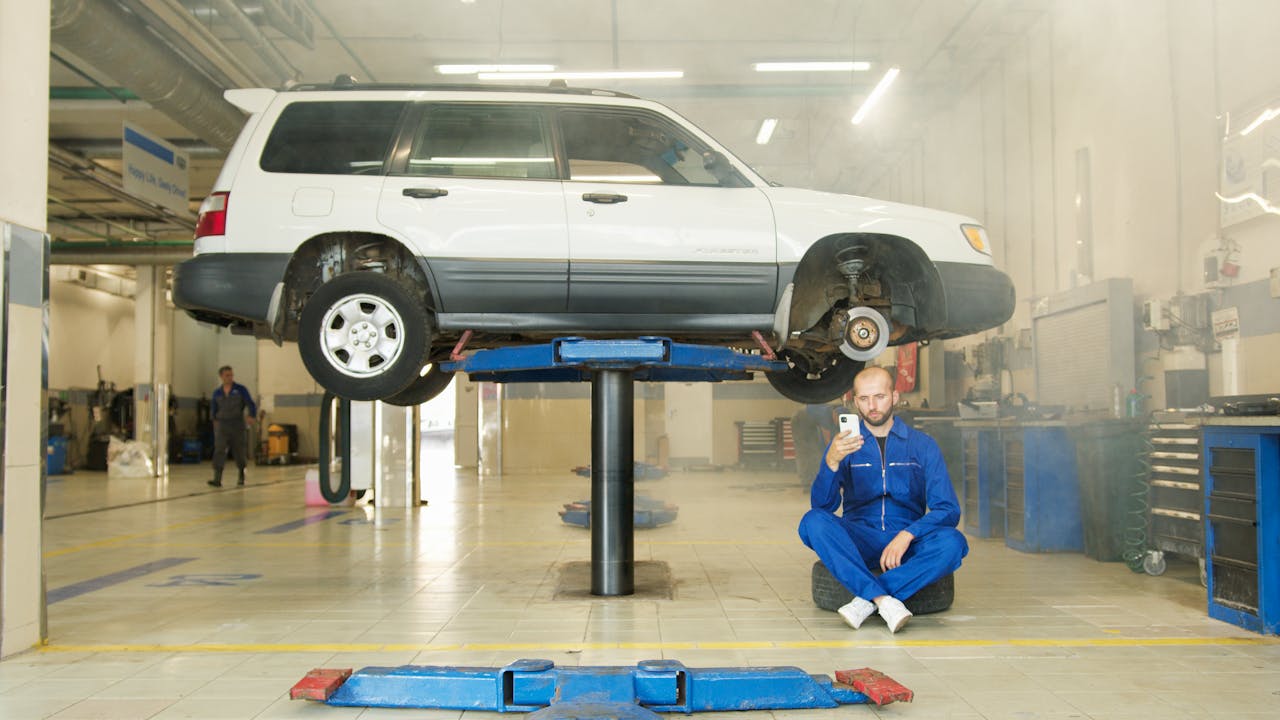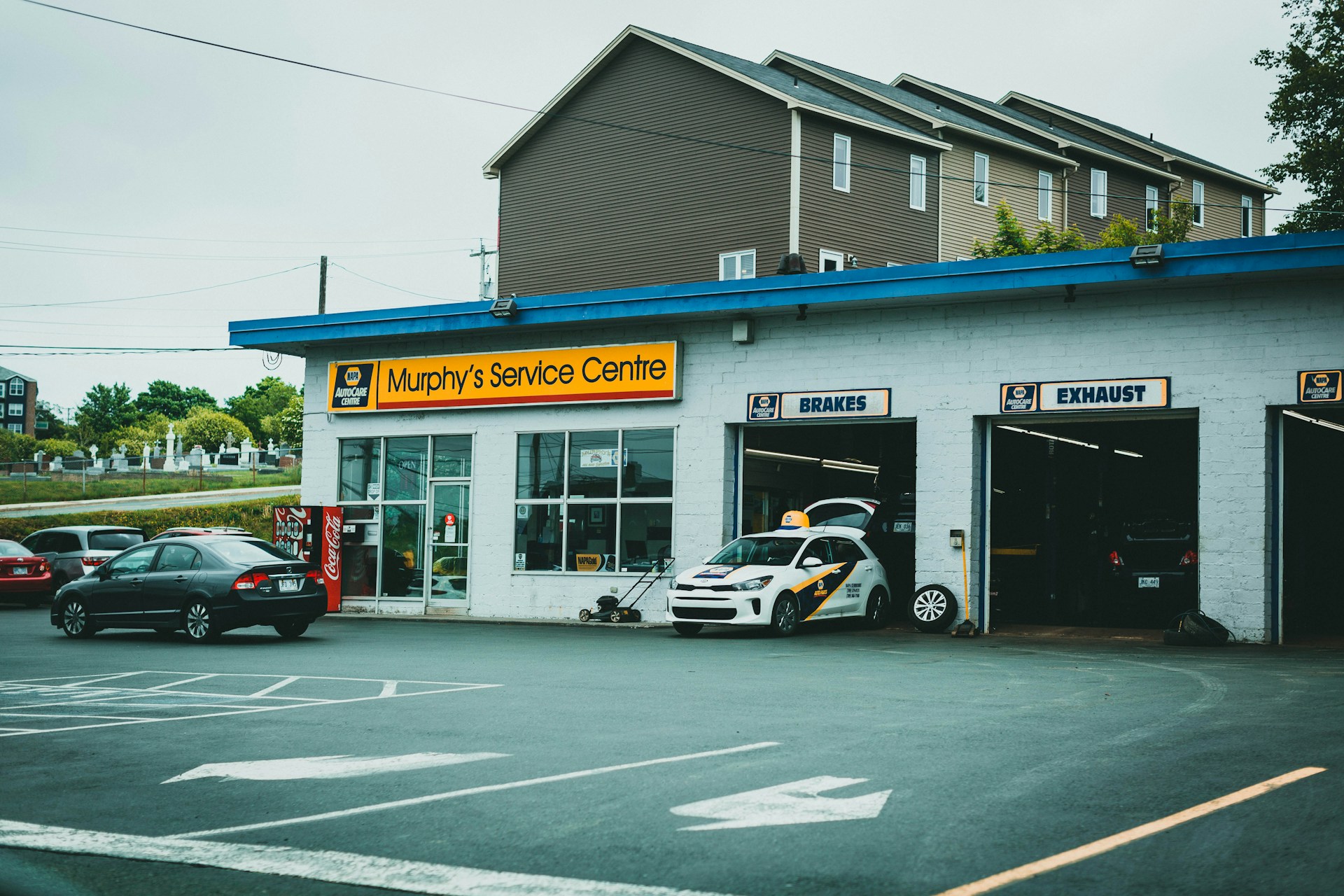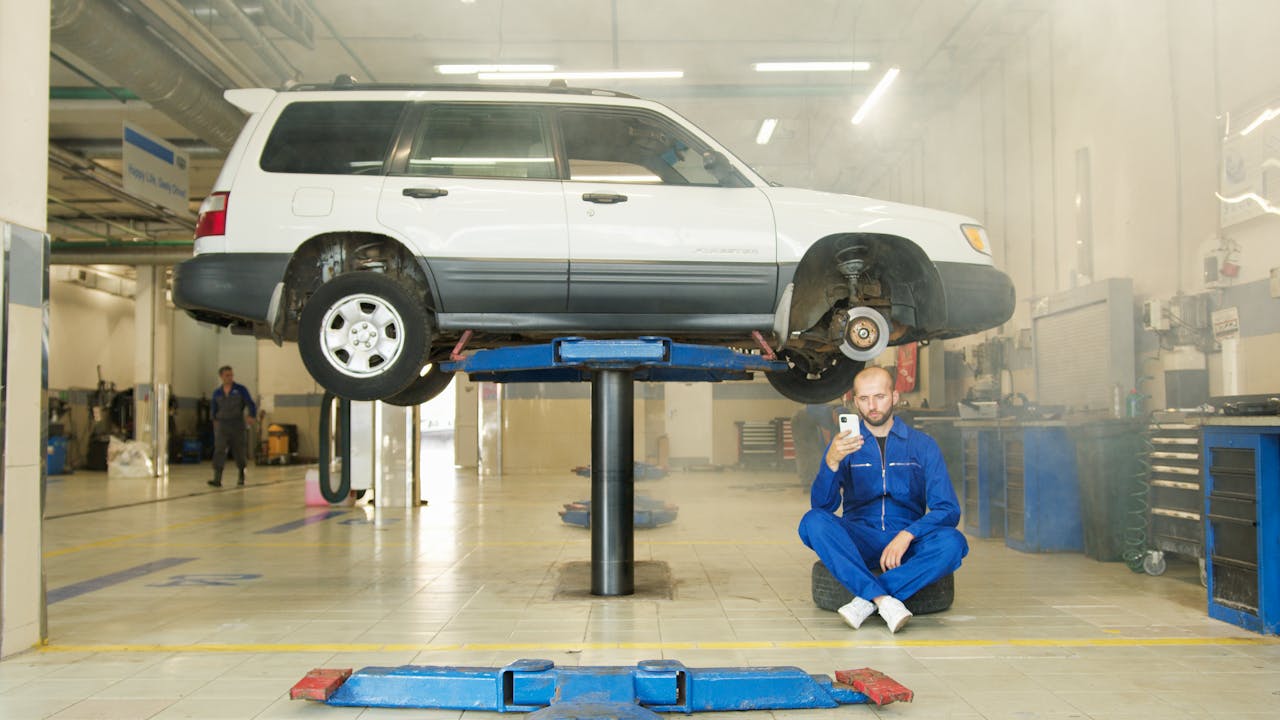Dallas garage construction offers two fundamental approaches: attached spaces that connect directly to your existing structure or detached, stand-alone buildings that function independently. Each approach serves different operational needs and site constraints that we encounter regularly in our construction practice.
Detached garage construction resembles building a small house from the ground up. We establish a poured concrete foundation, frame the structure completely, and coordinate all utilities as separate systems. Attached garages leverage existing walls and utility connections, which can streamline the construction process and reduce material costs. Both approaches require careful planning for garage bays, metal siding options, and paved parking areas that support heavy vehicle loads and frequent use patterns.
Which Dallas Permits, Licenses, And Codes Apply?

Dallas requires a master building permit for any work to erect, construct, enlarge, alter, or convert a structure. Under Dallas Building Code Chapter 52, this permit serves as the foundation for construction compliance throughout the city. We coordinate with the building official to secure this authorization before beginning any structural work on garage construction projects.
Licensed Trade Requirements
Electrical work must be performed by a licensed electrician in Dallas. The city maintains strict oversight of electrical installations to ensure safety and code compliance. Plumbing and mechanical work requires licensed contractors, with one notable exception: homesteaded homeowners may perform plumbing or mechanical work on their own homes. However, homeowner exemptions still require appropriate permits and inspections when mandated by Chapter 52.
We ensure all electrical, plumbing, and mechanical systems meet Dallas standards by engaging properly licensed professionals. This approach prevents code violations and ensures inspections proceed smoothly during construction phases.
Certificate Of Occupancy Requirements
Many occupancies require a Certificate of Occupancy before use. This document permits land and buildings to be used for specific purposes listed on the certificate. While single-family and duplex uses are typically exempt, commercial garage operations or multi-tenant facilities often need this approval. We help determine early in planning whether your garage project will require a Certificate of Occupancy to avoid delays during final phases.
Zoning And District Regulations
Check zoning and planned development district rules using the city’s zoning map early in the planning process. Dallas maintains an online zoning map that identifies your property’s specific district and applicable regulations. Planned development districts contain customized standards for height, setbacks, and allowed uses that may differ from standard zoning requirements.
Setback and overlay district rules significantly affect placement and exterior work. Historic districts and conservation districts impose additional requirements for exterior modifications and construction approaches. These overlay zones often require certificates of appropriateness before beginning exterior work, adding time to the approval process.
Home Occupation Limitations
Home occupation rules in Dallas limit how residential properties can accommodate business activities. These regulations restrict signage, limit on-site employees to one person beyond residents, and control traffic generation. Activities must occur entirely inside the main structure, and the business cannot occupy more than 25 percent or 400 square feet of the total floor area, whichever is less.
We evaluate whether garage workshop activities fall under home occupation rules and ensure compliance with advertising restrictions, parking limitations, and operational boundaries. Understanding these limitations helps avoid code enforcement issues once the garage becomes operational.
What Do Budget Ranges And Timelines Look Like?
Understanding garage construction costs and project timelines helps us set realistic expectations for your Dallas build. We see typical project budgets range from about $15,000 to $45,000, with most average-size builds settling around $25,000. These ranges reflect the significant impact that material choices, size, and finishing levels have on final costs.
Material selection drives much of the cost variation we encounter. Brick or stone exteriors command premium pricing compared to wood siding options, often adding $8,000 to $15,000 to total project costs. When we specify heating, cooling, insulation, windows, and ventilation systems, these comfort and functionality upgrades increase the overall budget considerably. A stable poured concrete base remains non-negotiable for any quality build and represents a significant line item in every project budget.
Construction timelines vary based on project complexity and external factors. Simple garage builds typically require 3 to 6 weeks from foundation pour to final inspection. Complex or custom projects often extend to 2 to 4 months, especially when incorporating specialized workshop features or non-standard layouts. Weather conditions and permit timing can affect schedules, particularly during Dallas’s intense summer months or periods of heavy permit application volume at city offices.
Several cost drivers consistently impact project budgets. Foundation work, including excavation and the poured concrete base, represents one of the largest single expenses. Electrical rough-in and finish work, required by Dallas code to be performed by licensed electricians, adds substantial labor costs. HVAC installations for climate-controlled workshops push budgets higher, while premium finishes and amenities like epoxy floor coatings or custom storage systems create additional expense.
We coordinate project scheduling around permit approval timelines, which can range from 2 to 6 weeks depending on project complexity and city workload. Weather delays become more likely during certain seasons, with extreme heat potentially affecting concrete curing times and worker productivity. Material delivery schedules also influence timing, particularly for specialty items or during periods of high construction demand in the Dallas market.
What Design Choices Matter For Mechanic Or Workshop Garages?
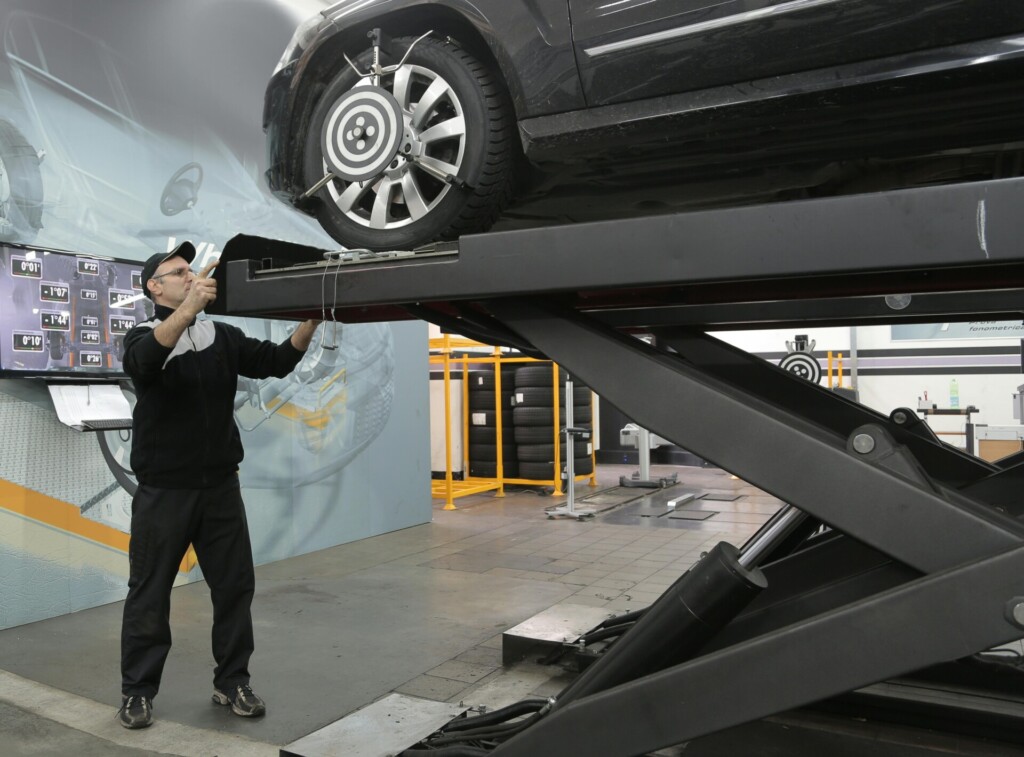
We approach garage HVAC planning with specific heating and cooling solutions for year-round functionality. The mechanical systems we install need to handle temperature extremes, moisture control, and air quality demands unique to automotive and workshop environments.
Heating Systems For Workshop Environments
Forced-air heaters deliver consistent heat distribution throughout the workspace. We install these units to circulate warm air evenly, preventing cold spots that can affect productivity and equipment performance. The ductwork design ensures adequate airflow to all work areas without creating drafts that interfere with precision tasks.
Infrared heaters provide targeted heating for specific work zones. We position these units strategically to warm operators and workbenches directly rather than heating the entire air volume. This approach proves especially effective for detached garages where heat loss through large doors and uninsulated surfaces challenges conventional heating methods.
Electric garage heaters offer reliable backup heating and zone control flexibility. We integrate these units where natural gas access is limited or where spot heating serves particular functions like paint booth areas or engine diagnostic stations.
Cooling Solutions And Ventilation Requirements
Window A/C units handle cooling needs in smaller workshop spaces effectively. We size these units based on garage square footage, considering the additional heat load from vehicles, welding equipment, and other machinery. Proper placement ensures adequate air circulation without creating temperature imbalances.
Commercial floor A/C units serve larger mechanic bays where ceiling-mounted systems prove impractical. We position these units to avoid interference with vehicle lifts and overhead equipment while maintaining consistent temperature control throughout the work area.
Ventilation systems remove automotive exhaust, paint fumes, and other airborne contaminants that standard HVAC systems cannot handle alone. We install exhaust fans with appropriate CFM ratings to maintain safe air quality levels and prevent hazardous buildup. Cross-ventilation design ensures fresh air intake balances exhaust removal for optimal air exchange rates.
Insulation And Weatherproofing Strategies
Fiberglass batting in ceilings and walls reduces energy costs and temperature fluctuations. We install insulation with proper vapor barriers to prevent moisture accumulation that can damage tools and equipment. Wall insulation also provides sound dampening for noise-generating activities.
Garage door insulation requires both panel inserts and weatherstripping systems to seal gaps effectively. We select insulation materials that withstand the mechanical stress of door operation while maintaining thermal performance. Proper weatherstripping around door frames prevents air leakage that forces HVAC systems to work harder.
Workshop Storage And Organization Elements
Pegboard storage systems keep tools organized and accessible while maintaining clear airflow paths. We position pegboard installations to complement ventilation patterns rather than obstruct air circulation. Tool organization directly impacts workspace efficiency and safety compliance.
Storage cabinets and shelving serve dual purposes of organization and workspace definition. We design these elements to support both daily operations and code compliance requirements for hazardous material storage. Proper cabinet placement also facilitates equipment maintenance access.
Work benches require strategic positioning relative to power sources, ventilation, and natural lighting. We coordinate bench placement with electrical rough-in to ensure adequate power availability without creating cord management hazards.
Attached Versus Detached Configuration Considerations
Attached garages leverage shared walls and utility connections to reduce construction costs. We coordinate with existing home systems where code permits, utilizing shared electrical panels and potentially extending HVAC distribution. However, fire separation requirements and noise transmission concerns influence design decisions.
Detached configurations provide layout flexibility and larger bay potential without home structure constraints. We can optimize door placement, ceiling height, and equipment positioning based purely on workshop functionality. Detached garages also allow for expansion without affecting residential spaces and often accommodate larger vehicle types or specialized equipment arrangements.
Conclusion and Next Steps

Successful mechanic garage construction in Dallas starts with clear decisions about your intended use and space requirements. We define the scope early, then choose between attached or detached configurations based on site constraints and budget considerations.
Getting Dallas permits, licenses, and inspections coordinated early prevents delays and ensures code compliance throughout the build process. We review Certificate of Occupancy requirements and zoning restrictions before breaking ground. Licensed trades handle electrical, plumbing, and mechanical work where required. We plan garage HVAC systems, insulation, and ventilation during design to support year-round functionality and safety. Using realistic cost ranges of $15,000 to $45,000 and timelines of 3-6 weeks for simple builds helps establish achievable project schedules.
Ready to start your mechanic garage project in Dallas? Contact EB3 Construction for expert guidance through permits, design, and construction.

